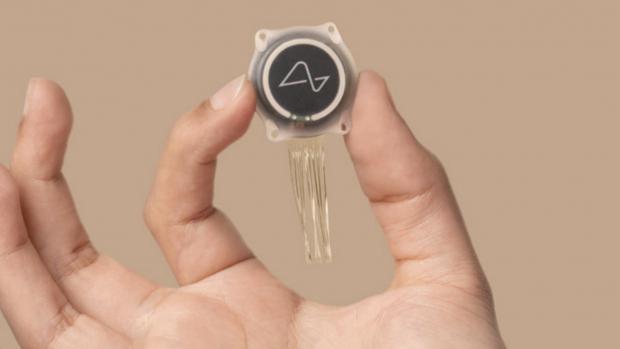
Breaking News
 The fraud being exposed in California is INSANE
The fraud being exposed in California is INSANE
 BlackRock Just Confirmed the Worst-Case Scenario
BlackRock Just Confirmed the Worst-Case Scenario
 You Don't Own Your Stocks the Way You Think You Do
You Don't Own Your Stocks the Way You Think You Do
 BLM 'KICKS BISON OFF THE LAND'? The Story the Headlines Didn't Tell
BLM 'KICKS BISON OFF THE LAND'? The Story the Headlines Didn't Tell
Top Tech News
 How underwater 3D printing could soon transform maritime construction
How underwater 3D printing could soon transform maritime construction
 Smart soldering iron packs a camera to show you what you're doing
Smart soldering iron packs a camera to show you what you're doing
 Look, no hands: Flying umbrella follows user through the rain
Look, no hands: Flying umbrella follows user through the rain
 Critical Linux Warning: 800,000 Devices Are EXPOSED
Critical Linux Warning: 800,000 Devices Are EXPOSED
 'Brave New World': IVF Company's Eugenics Tool Lets Couples Pick 'Best' Baby, Di
'Brave New World': IVF Company's Eugenics Tool Lets Couples Pick 'Best' Baby, Di
 The smartphone just fired a warning shot at the camera industry.
The smartphone just fired a warning shot at the camera industry.
 A revolutionary breakthrough in dental science is changing how we fight tooth decay
A revolutionary breakthrough in dental science is changing how we fight tooth decay
 Docan Energy "Panda": 32kWh for $2,530!
Docan Energy "Panda": 32kWh for $2,530!
 Rugged phone with multi-day battery life doubles as a 1080p projector
Rugged phone with multi-day battery life doubles as a 1080p projector
 4 Sisters Invent Electric Tractor with Mom and Dad and it's Selling in 5 Countries
4 Sisters Invent Electric Tractor with Mom and Dad and it's Selling in 5 Countries
Elon Musk's Neuralink Seeks Patients Globally To Try Its Brain Chips

Neuralink is looking for people with quadriplegia — those who are not able to use their arms or legs — to sign up for a clinical trial, it said in an April 2 post on X, the social media platform also owned by Musk.
As of January, Neuralink has said that three patients have been implanted with a device. All are quadriplegic and are testing a small brain implant that tracks neural activity to control a computer or smartphone as part of a clinical trial called the Precise Robotically Implanted Brain-Computer Interface, or PRIME study.
Neuralink is one of several companies and academic institutions developing and testing so-called brain-computer interfaces, which vary from small wire-like implants as part of clinical trials to non-invasive devices akin to a hat.
Neuralink's website says its clinical PRIME study, which will take around six years, is looking for quadriplegics with spinal cord injury or amyotrophic lateral sclerosis to use their thoughts to control a computer.
Musk also heads vehicle maker Tesla and is the Trump administration's government cost-cutting czar. He has said he wants Neuralink to move beyond just allowing humans to operate computers by thinking and wants to help "give people superpowers."
First Neuralink patient reports no side effects after a year
Noland Arbaugh, Neuralink's first patient, said in a March 28 X post that he's "had no negative side effects, neither physically nor psychologically" in the year after receiving his brain implant.
Arbaugh, a quadriplegic, demoed his brain chip about a year ago by controlling a computer cursor to play chess and surf the web.
Arbaugh said he's now using his brain chip "for all sorts of things" and guessed he's using it for over 10 hours a day.
He said the company's researchers were "figuring out how to control a wheelchair with the implant," which he added he won't use "unless it's next to perfect. I think it benefits everyone if I don't lose control and drive into traffic."
Arbaugh said he had found work as a traveling keynote speaker thanks to Neuralink's implant, which helps him write, research, and communicate online.
"I can't tell you how much hope and purpose this technology has provided me," he wrote. "It's only a matter of time before the implant is in dozens, then hundreds, then thousands of people."



